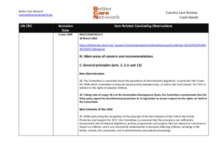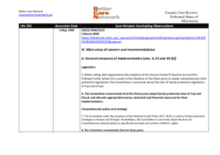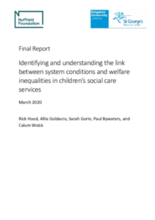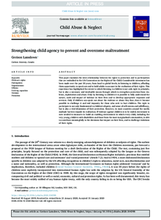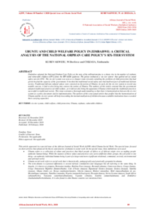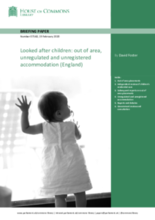Displaying 221 - 230 of 1796
This volume provides an in-depth examination of the history and goals of the foster care system in the US, how and why it fails to adequately meet children’s needs, and what it would take to actualize meaningful improvements in children’s experiences and outcomes.
This chapter provides a review and analysis of the “best interests of the child” standard in foster care policy and practice.
This country care review includes the care related Concluding Observations adopted by the Committee on the Rights of the Child.
This paper from the Children and Youth Services Review reflects on the collective participation of young people in care in a rights-based initiative intended to facilitate input into service and policy development in Ireland.
This country care review includes the Concluding Observations of the Committee on the Rights of the Child.
This survey of the statutory provisions and case law of all 50 states [of the USA] and the District of Columbia includes the rights of children to parental support, inheritance, and familial association remaining upon termination of parental rights.
This report presents the findings from a study of the organisational and institutional context of statutory children’s social care (CSC) in England and its contribution to inequalities in provision.
This paper examines the inter-relationship between the rights to protection and to participation that are embodied in the UN Convention on the Rights of the Child.
The authors of this article contend that the government of Zimbabwe adopted traditional practices of child welfare in its National Orphan Care Policy, yet it did not also bring the apparatus (Ubuntu) which made the traditional practices successful in traditional society.
This briefing provides information on two separate but related topics concerning looked after children in England: out of area and distant placements and unregulated and unregistered accommodation

